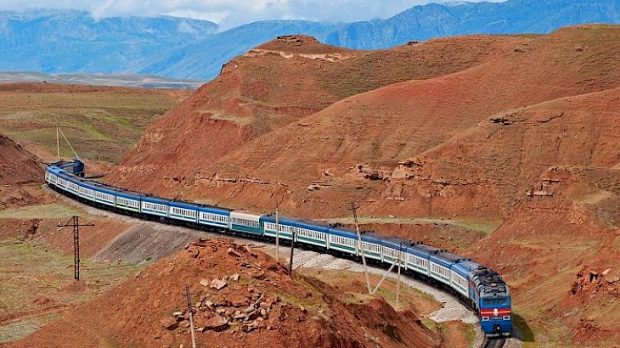China-Kyrgyzstan-Uzbekistan railway to cut freight time by one week

BISHKEK: Kyrgyzstan President Sadyr Zhaparov said that the China-Kyrgyzstan-Uzbekistan (CKU) railway creates broad conditions for the state to receive large revenues and attract foreign investment in the future.
“We have reached an agreement on the construction of the China-Kyrgyzstan-Uzbekistan railway, which has been discussed since the first years of our independence, but has not been decided due to the opposition of some political interests,” he said, quoted by Kabar news agency.
“The construction of this railway will provide access to the sea and make our railway a transit one. That will give great economic opportunities for development.”
Specialists have arrived from China who are conducting research in the Naryn and Jalal-Abad regions.
“This road creates broad conditions for the state to receive large revenues and attract foreign investment in the future,” he said.
According to Global Times, the CKU route, which will become the southern part of China-Europe freight rail, will link China, Kyrgyzstan and Uzbekistan to Central and Eastern Europe via Iran and Turkey.
According to the plan, the total length of the CKU railway will be about 523 kilometers, including 213 kilometers in China, 260 kilometers in Kyrgyzstan and about 50 kilometers in Uzbekistan.
The railway has been planned for at least 25 years. As early as 1997, China, Kyrgyzstan and Uzbekistan signed a memorandum of understanding on the construction of a railway linking the three countries.
The CKU railway is largely thought to give China the chance to reduce its dependence on Russian routes, diversify its trade routes, and, in the long term, maintain sustainable rail trade with European Union countries in the context of their land-based trade relations.
The new railway will also help Kyrgyzstan and Uzbekistan boost their economies through the jobs it will create for their citizens and through the transit fees they will receive.
Through the CKU, China will send its exports to the Middle East and Europe faster as the railway will shorten the freight journey by 900 kilometers and save at least one week in shipping time.
























































